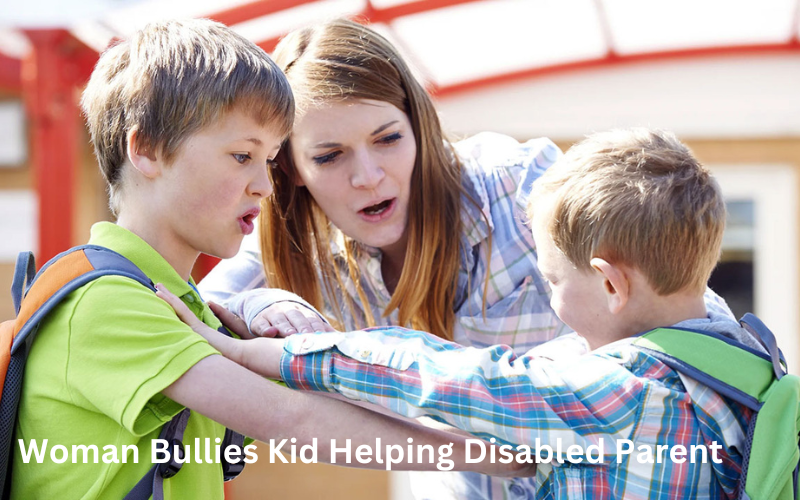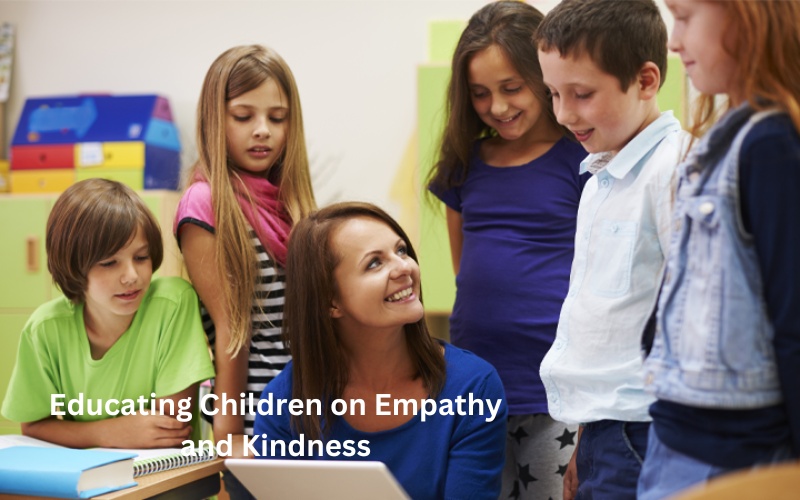Bullying is a pervasive issue that affects individuals across all ages and backgrounds. However, it becomes particularly distressing when it involves vulnerable groups, such as children helping their disabled parents. This article delves into a specific incident where a woman bullied a child who was assisting their disabled parent, exploring the broader implications and offering insights into prevention and support.
Understanding the Situation

The Role of Children in Caregiving
Children often step into caregiving roles for their disabled parents, offering physical assistance and emotional support. This responsibility can be overwhelming, yet it also fosters resilience and empathy in young caregivers.
The Challenges Faced by Disabled Parents

Disabled parents encounter numerous obstacles, from physical limitations to societal stigmas. These challenges necessitate a supportive environment, which makes the bullying incident even more concerning.
The Bullying Incident
Detailed Account of the Event
In this incident, the woman’s harassment of the child was unprovoked and targeted. The child, simply aiding their disabled parent with everyday tasks, became the subject of cruel taunts and intimidation. This type of bullying not only undermines the child’s confidence but also impacts the family’s morale.
Immediate Reactions
Witnesses reported feelings of outrage and helplessness. Immediate intervention by bystanders is crucial in such scenarios, yet in this case, fear and shock paralyzed potential helpers.
Psychological Impact on the Child

Short-term Effects
Initially, the child might experience acute stress, anxiety, and a drop in self-esteem. These immediate effects can disrupt their daily functioning and school performance.
Long-term Consequences
Prolonged exposure to bullying can lead to chronic psychological issues, such as depression, anxiety disorders, and trust issues. The emotional scars from such incidents can affect the child well into adulthood.
Community and Social Response

Support from Neighbors and Friends
Community support plays a vital role in recovery. Neighbors and friends rallying around the family can offer much-needed emotional and practical assistance.
Role of Social Media
Social media can amplify the issue, attracting wider attention and support. However, it also risks further victimization if not managed carefully.
Legal Implications
Anti-Bullying Laws
There are stringent anti-bullying laws designed to protect victims and penalize perpetrators. Understanding these laws can empower families to seek justice.
Rights of Disabled Individuals and Their Families

Families of disabled individuals have specific legal protections to ensure they are treated with dignity and respect. Violating these rights can result in significant legal consequences.
The Importance of Bystander Intervention
How to Intervene Safely
Intervening in bullying situations must be done with caution to ensure safety. Techniques such as defusing the situation, calling for help, and offering support to the victim are effective.
Encouraging a Culture of Support
Creating an environment where bystanders feel empowered to act is crucial. Education and community programs can help foster a culture of intervention and support.
Resources for Disabled Parents

Government Assistance
Various government programs provide financial aid, healthcare services, and other support to disabled parents, easing their caregiving burdens.
Non-Profit Organizations
Non-profits offer additional resources, including counseling, legal aid, and advocacy services, to help disabled parents navigate challenges.
Educating Children on Empathy and Kindness

School Programs
Schools play a pivotal role in teaching empathy and kindness. Programs focused on social-emotional learning can reduce bullying incidents.
Parental Guidance
Parents can model empathy and kindness, teaching children to respect and support others, especially those facing difficulties.
Strategies to Prevent Bullying
Creating Safe Environments
Ensuring that schools, playgrounds, and neighborhoods are safe and inclusive can significantly reduce bullying.

Empowering Victims and Bystanders
Empowering children to speak up and seek help when they witness or experience bullying is essential. Providing them with the tools and confidence to act can make a difference.
Conclusion
Bullying a child who is helping a disabled parent is a deeply troubling act that has far-reaching consequences. By understanding the dynamics of such situations and fostering a supportive community, we can protect vulnerable individuals and promote a culture of empathy and respect.
FAQs
What are the signs a child is being bullied?
Signs include unexplained injuries, lost belongings, changes in eating habits, and avoidance of social situations.
How can parents help their children cope with bullying?
Parents can offer emotional support, communicate openly, and involve school authorities or counselors when necessary.
What legal actions can be taken against bullies?
Legal actions can include restraining orders, school disciplinary measures, and criminal charges depending on the severity of the bullying.
How can communities support disabled parents and their children?
Communities can offer practical help, emotional support, and advocate for policies that protect and empower disabled individuals and their families.
Why is it important to educate children about empathy?
Educating children about empathy fosters a kinder, more inclusive society where bullying is less likely to occur.

